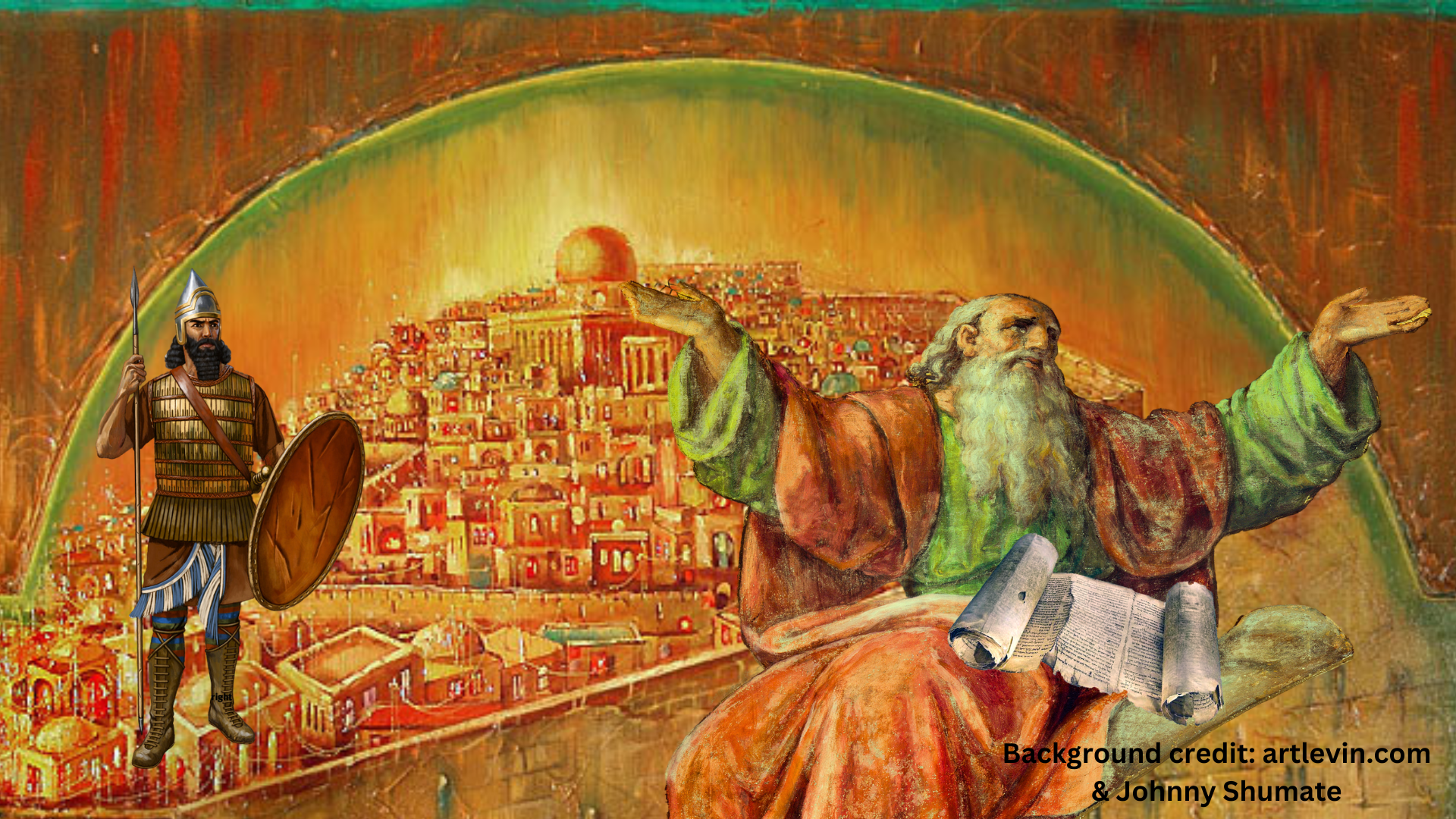
Background credit: artlevin.com
& Johnny Shumate
Isaiah, the son of Amoz lived in the Kingdom of Judah (Later named Judea by the Romans) during the time of 4 Kingss from the mid to late 8th-century BCE. (for a description of the 4 Kings click the link and scroll down)
Isaiah was a prophet and lived 740 BCE to 681 BCE.
-
Isaiah received his commission to ministry in a frightening vision.
-
his was in the last year of King Uzziah. (Isaiah 6:1-10
Excerpt from Got Questions: "Isaiah, whose name means “Yahweh (God) is salvation,” is best known for writing the book that bears his name in the Old Testament.
Isaiah's writings are especially significant for the prophecies he made about the coming Messiah, hundreds of years before Jesus was born (Isaiah 7:14;
Matthew quotes Isaiah when describing John the Baptist’s ministry (Matthew 3:3; Isaiah 40:3).
When Jesus moved to Galilee to start His ministry, Isaiah’s prophecy was fulfilled (Matthew 4:13-16; Isaiah 9:1-2).
Jesus quotes Isaiah’s prophecy when speaking in parables (Isaiah 6:9; Matthew 13:14-15).
When Jesus reads from Isaiah (Isaiah 61:1-2) in the synagogue at Nazareth, He amazes many of the Jews by claiming the prophecy is fulfilled in Him (Luke 4:16-21).
It is also interesting to note that the Gospels quote more from Isaiah’s writings than from any other of the Old Testament prophets.
Little is written about Isaiah the man. We know that he was the son of Amoz and that he married and had sons of his own (Isaiah 7:3;). Though Isaiah’s recognition as a great prophet is indicated in the books of the Kings and Chronicles, it is also probable that he was a priest, as his calling from God took place in the temple (Isaiah 6:4), an area reserved only for priests.
The anointing he receives at his calling is similar to that of the prophet Jeremiah (Jeremiah 1:9; Isaiah 6:7).
Along with his contemporary, the prophet Micah, Isaiah served the southern kingdom of Judah under the reigns of four kings.
At the time of Isaiah’s ministry, Judah was a sinful and unjust nation. Nevertheless, Isaiah believed that Judah was God’s chosen nation and they would be vindicated by God.
With support from Micah and the godly King Hezekiah, their enemies were held at bay and a revival swept through the nation of Judah (2 Kings 19:32-36; 2 Chronicles 32:20-23).

Assyria (Assur)
and Babylonia.
Lachish
Many commentators describe Isaiah as Judah’s evangelist because he worked tirelessly to turn the people back to God.
Isaiah's faithfulness to God was rewarded with some amazing miracles. In answer to Isaiah’s prayer, God moved the sun back ten steps as a sign to King Hezekiah that God would add a further 15 years to Hezekiah’s life (2 Kings 20:8-11; 2 Chronicles 32:24).
Yet Isaiah spent three years stripped naked and barefoot, in obedience to God, as a “sign and wonder” against the Egyptians (Isaiah 20:2-4). His contemporary, Micah, did likewise (Micah 1:8), though we are not told for how long.
It is in examining a man’s heart that we can learn what kind of a man he is, and Jesus said it is from the overflow of a man’s heart that he speaks (Matthew 12:34). It is from Isaiah’s writings that we learn of his unswerving faithfulness and his complete humility before God. He also had great respect from King Hezekiah’s court and his peers, which was evident in times of crisis. Some of the world’s greatest art works, music and poetry have come from men who walked closely with God, and we can count Isaiah among them.
His grasp of the Hebrew language has been likened to that of Shakespeare’s English, as we read in Isaiah some of the most beautiful writings in the Bible. Though the book of Isaiah was written over 2,500 years ago, it is well worth reading through the entire book, because in it we see much wisdom that still applies to our Christian lives today.
In addition, it appears Isaiah’s ministry was characterized by closeness with other godly men, like Micah and King Hezekiah."
Below is an interesting overview of Isaiah which my daughter found:








